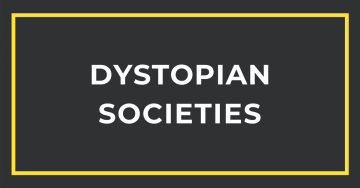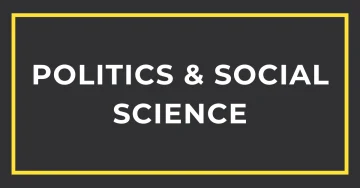Books on Libertarianism You Should Read Now
Libertarianism typically isn’t something you’re taught in the American public education system. This makes sense. Just like the priests who teach at Catholic school might not hand out copies of God Is Not Great, so too would government employees…
Post
Dystopian Societies: Best Fiction Novels on Dystopian Societies
Below is a list of some classic dystopian novels along with a few more contemporary selections to make you reflect and think "what if?"
Post
Politics & Social Science: Best Political Non-Fiction Novels
Below is a list of political non-fiction novels, as well as a selection of social science non-fiction books.
Political Non-Fiction
Post



